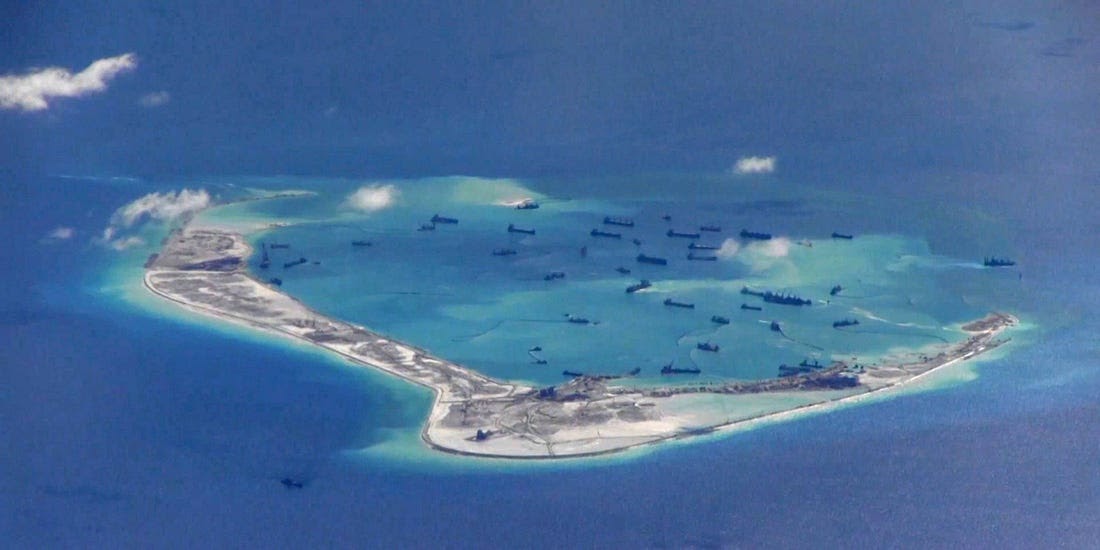Duterte wants to end U.S.-Philippines military engagement


Mischief Reef, one of several islands near the Philippines that it claims, but which China occupies. The U.S. has conducted several freedom of navigation operations near this location in recent years.
Manila-based outlet Rappler reports:
After lashing out at the United States for weeks, President Rodrigo Duterte moved to formally end the Philippines’ Visiting Forces Agreement (VFA) with the U.S., taking his dislike for the country’s old ally a notch further.
Upon Duterte’s orders, Foreign Secretary Teodoro Locsin Jr signed on Tuesday, February 11, the Duterte government’s notice that it was terminating the VFA, triggering a 180-day or 6-month countdown until the agreement would formally end.
What does this mean?
Much of the American military presence in the Philippines is dependent on the agreement: “All the engagements, all the freedom of navigation operations, all the exercises, all the joint training, having U.S. military personnel in port, on the ground, on the flight line, does require that we have a mechanism that allows that, and that’s why the VFA is so important,” said U.S. Assistant Secretary of State for Political-Military Affairs R. Clarke Cooper, per Rappler.
Ending this engagement would be a major win for China.
The Duterte government could change course: Duterte is notoriously fickle, and has made empty threats to terminate the VFA for years. Just three days ago, per the Rappler report, the defense secretary of the Philippines had called reports that Duterte was about to issue this notice of termination “fake news.” According to a separate report in Rappler, “members of the Philippine military are generally against the termination.” But Duterte himself appears to have made up his mind. Per the New York Times:
“Trump and others are trying to save the Visiting Forces Agreement,” he added of the American president. “I told them, I do not want to. One is that Americans are very ill mannered,” he said, cursing Central Intelligence Agency agents who he said may be listening to him.
Furthermore, this news comes at the same time as the COVID-19 crisis, and the Philippines happens to be the one foreign country that has reported a death from the outbreak. Foreign Policy has more (porous paywall) on the backlash that this is creating:
Duterte’s perceived reluctance to respond quickly to the virus, which critics saw as tied to his administration’s warm relations with the Chinese government, led the hashtag #OustDuterte to trend on Twitter. The virus has not only shaken public trust in Duterte’s government, which remains broadly popular (porous paywall), but it has also worsened the already fraught relationship between the majority of ethnic Filipinos and the country’s sizable community of Chinese Filipinos, known locally as Tsinoys, along with hundreds of thousands of Chinese nationals residing in the Philippines. While Chinese Filipinos are well integrated into Philippine society, resentment sometimes arises due to their relative wealth and their traditional presence among the nation’s elite.
Nick Aspinwall, the author of that Foreign Policy piece, has previously written for The China Project on Tsinoys, and the evolving nature of Chinese immigration and identity in the Philippines.
—Lucas Niewenhuis






